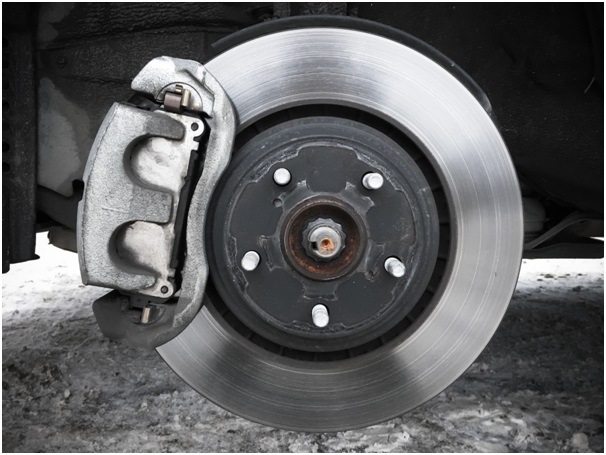Do your old and rusty brake rotors need to be replaced? Here’s why you should consider buying and installing coated brake rotors.
It could be one of the most significant questions of our time: how are coated brake rotors different from uncoated ones? If you’re replacing old rusty brake rotors, knowing the difference helps you determine the best new braking system for your vehicle.
While you might pay a little more for rotors with coating, in most cases, you’ll also extend the life of your new rotors. If you want to keep your older model car on the road a while longer, choosing coated rotors can make that possible.

What’s the difference between uncoated versus coated rotors? Keep reading to find out!
Uncoated Rotors Were Once Simply “Rotors”
Until innovations in rotor technology became the norm for most automobiles manufactured today, rotors weren’t “uncoated.” They did not have a coating, but the technology simply hadn’t caught up to the many benefits of applying a coating to rotors.
Uncoated rotors aren’t bad—they’re just the old-school type of rotor found on many older model vehicles. Without the coating, rotors can rust over time. Rusted rotors won’t pass a vehicle inspection and can leave your car inoperable if the rust goes untreated.
Coated Rotors Are Better Technology
Applying a coating to rotors helps prevent corrosion and rust. With a barrier to the elements, your rotors can last longer than your older model car after replacement.
Choosing coated brake rotors can also enhance the look of your wheels while protecting your car’s braking system. A coating helps:
- Keep rotors clean
- Repel rust and other corrosive materials
- Optimize airflow through your braking system
- Resists high temperatures
- Improve braking performance
Depending on the coating you choose, you’ll find eco-friendly options that don’t include harmful chemicals or metals. Applying environmentally-friendly rotor coatings takes place in a closed system with no chemical evaporation.
Does Rotor Coating Hurt Brake Pads?
Drivers don’t have to worry about the rotor coating affecting brake pads or making it difficult to stop your vehicle. Rotor coating is thin and wears away from brake pads and other surfaces that involve friction. The remaining flat surfaces—where rust forms—retain the coating to protect the rotors.
Applying the coating to the entire rotor helps ensure that the critical surfaces have the coating they need. As designed, the coating wears away from brake pads and other surfaces with use.
How Long Does It Last?
The length of time a rotor coating lasts depends on many factors: driving conditions, frequency of use, and weather conditions.
In general, brake rotors should be replaced every 30,000 to 70,000 miles. Coated rotors can last longer without sacrificing braking performance or collecting rust.
When changing the oil in your car, have your mechanic also inspect the rotors. If they spot damage, like rust or cracks, it’s time to replace brake rotors!
Coated Brake Rotors Help Keep You Safe!
Coated brake rotors help keep drivers safer on the road. When it’s time to replace the rotors on an older vehicle, consider an upgrade!
Did you find this information helpful? Be sure to check out more of our articles!




